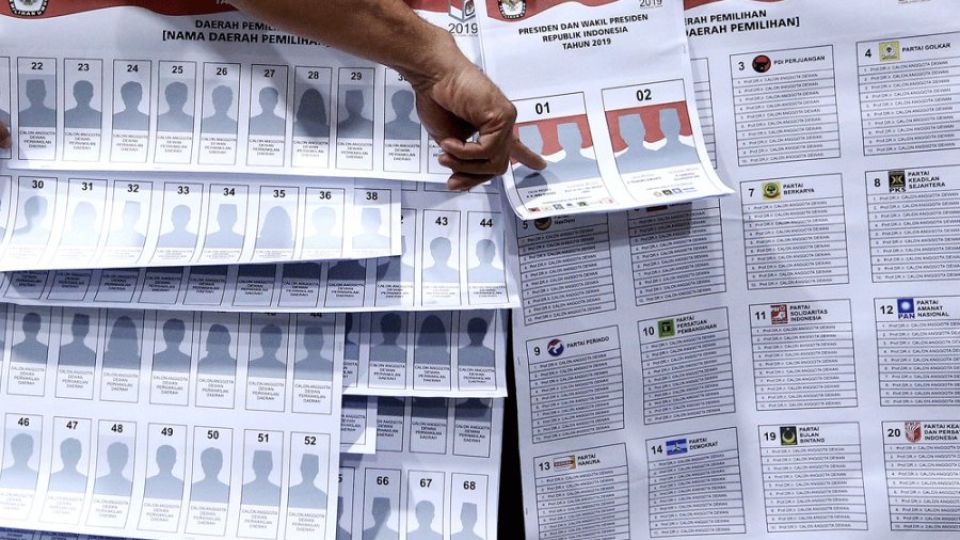May 25, 2023
JAKARTA – The three politicians currently leading the nation’s opinion polls are intensifying their efforts to boost their electability, embarking on so-called political safaris to meet with notable figures and rallying supporters roughly nine months before voters cast their ballots on Feb. 14, 2024.
Fresh from his formal nomination on Kartini Day as the presidential candidate of the Indonesian Democratic Party of Struggle (PDI-P), Central Java Governor Ganjar Pranowo has been meeting with influential clerics of Nahdlatul Ulama (NU), the largest Muslim organization in Indonesia.
Among the NU figures he has met with so far are Ahmad Mustofa “Gus Mus” Bisri on May 3 and Abdul Qodir Assegaf on May 10, both based on Central Java.
While the organization has stated that it would avoid taking part in practical politics ahead of the 2024 general election, the PDI-P is reportedly considering several NU figures as Ganjar’s running mate.
This emulates the strategy of President Joko “Jokowi” Widodo, a PDI-P member, who picked senior NU cleric Ma’ruf Amin as his running mate in his ultimately successful 2019 reelection bid.
For his part, the Vice President said on Wednesday that NU had plenty of capable figures within its ranks.
“I’m [from NU], and I’ve done well as vice president,” Ma’ruf said during a visit to Bali, as quoted by Kompas.
Given the influence NU has over the country’s Muslim majority population, Ganjar isn’t the only candidate who has been trying to forge closer ties with the organization.
Gerindra chairman Prabowo Subianto has been holding frequent meetings with NU clerics figures since he became the first politician to confirm his presidential aspirations in August 2022. These eventually culminated in December with a visit to East Java, where several clerics gave Prabowo their blessing.
In recent weeks, however, Prabowo’s “safari” has focused on the political sphere, kicking off on May 1 with a meeting with Golkar Party chairman Airlangga Hartarto and Golkar advisory council chief Aburizal Bakrie. Golkar is reportedly close to a decision on joining the Great Indonesia Awakening Coalition (KKIR), Gerindra’s electoral alliance with the National Awakening Party (PKB).
This week, Prabowo made headlines over his dinner last Friday with Surakarta Mayor Gibran Rakabuming Raka, President Jokowi’s eldest son. During his visit to the Central Java mayoralty, Prabowo met with several groups of Jokowi and Gibran supporters from Central and East Java that have decided to throw their weight behind his presidential bid.
The results of a Kompas Research & Development (Litbang Kompas) poll published on Wednesday show that Prabowo continues to gain momentum, with 36.8 percent of respondents saying they would vote for him, up from 29.1 in January. Ganjar still remains slightly ahead with 40 percent, down from 44.2 percent in January.
Considerably farther behind is Anies Baswedan, who has the backing of the NasDem Party, with an electability of just 23.2 percent, down from 26.8 percent in January.
The typically soft-spoken former Jakarta governor and presumptive opposition nominee has taken to a comparatively different strategy, ramping up his criticism of President Jokowi’s administration in politically heated speeches at pre-campaign rallies for his supporters.
During such a rally on May 7, Anies criticized the government’s decision to launch purchase incentives for electric vehicles (EVs) last month. Though he praised the government’s infrastructure development policy at that rally, he went on to criticize its overwhelming focus on building toll roads at a separate event two weeks later.
“For national roads, [the current] administration has only constructed 590 kilometers of [non-toll roads], while the SBY administration built 11,800 kilometers of national roads. That’s 20 times longer,” Anies said at an event on Saturday, citing a Katadata study and referring to Jokowi’s predecessor, Susilo Bambang Yudhoyono.
His criticisms have led to pushback from the government, with Coordinating Maritime and Investment Affairs Minister Luhut Panjaitan coming to the defense of EV purchase incentives and Presidential Chief of Staff Moeldoko speaking up for the toll road expansion projects.
“Maybe the people who are used to living in comfort only see luxury cars using the toll roads. But the buses that now use the toll roads carry poor people,” Moeldoko said on Monday, as quoted by Kompas.com.
While he has focused mainly on criticizing government policies, Anies has not shied away from snubbing his political rival. At another rally on Sunday, he spoke about his experience touring the country since his gubernatorial term ended, listening to the stories and grievances of ordinary people.
“I meet these people not for selfies. I’m [not the kind of politician] that likes to go for a run in the morning just for a photo op,” he said.
Many viewed the remark as a criticism of Ganjar, who is known for his regular social media posts on jogging and blusukan (impromptu visits), as he had just participated in a 5K event in Jakarta on Sunday morning, held by Central Java-owned lender Bank Jateng. (ahw)


